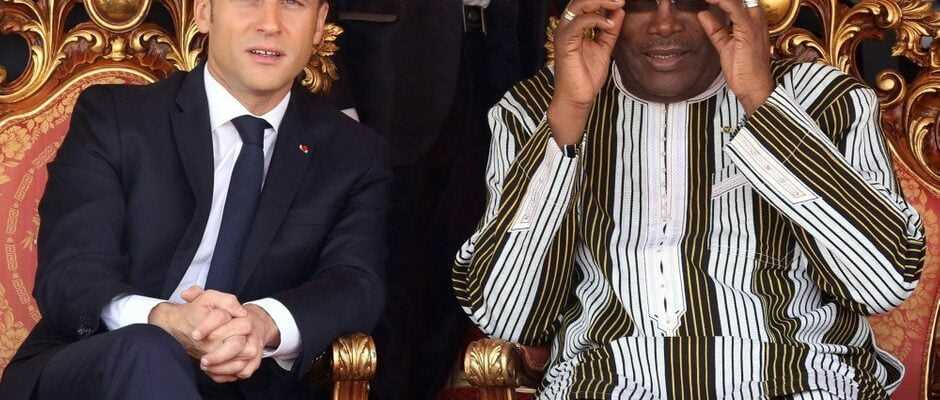Burkina Faso President Roch Marc Christian Kaboré was arrested on Monday. He is detained in a barracks in Ouagadougou by mutineers.
The President of Burkina Faso Roch Marc Christian Kaboré was arrested on Monday and was detained in a barracks in Ouagadougou, the day after mutinies in military camps in this country plagued by jihadist violence. “President Kaboré, the head of Parliament (Alassane Bala Sakandé) and ministers are indeed in the hands of soldiers” at the Sangoulé Lamizana barracks in Ouagadougou, a security source told AFP, information confirmed by another service source. of security.
President Kaboré, in power since 2015 and re-elected five years later on the promise to make the anti-jihadist fight his priority, had become increasingly contested by a population exasperated by jihadist violence and its powerlessness to deal with it. .
An AFP journalist noted that a dozen hooded and armed soldiers had posted themselves Monday morning in front of the headquarters of Radio Television du Burkina (RTB), which broadcast entertainment programs, AFP noted. Soldiers mutinied on Sunday in several barracks in Burkina Faso to demand the departure of army chiefs and “appropriate means” to fight against the jihadists who have struck this country since 2015.
Shots were heard at the end of the day near the residence of the head of state and a helicopter flew over the area with all lights extinguished, according to residents.
These mutinies occurred in a West Africa increasingly destabilized by jihadists who are also hitting neighboring Mali and Niger and where coups have recently occurred in Mali and Guinea.
Several angry demonstrations have taken place for several months in several cities of Burkina Faso to denounce the inability of the authorities to counter the jihadist attacks which are multiplying, often prohibited and dispersed by the riot police.
Protesters gave their support to the mutineers
Throughout the day on Sunday, demonstrators supported the mutineers and set up makeshift roadblocks in several avenues in the capital, before being dispersed by the police, AFP journalists noted.
Shots were heard for several hours on Sunday in several barracks in Burkina Faso, including those of Sangoulé Lamizana, Baba Sy and the air base in Ouagadougou. Mutinies also took place in Kaya and Ouahigouya, in northern Burkina where the majority of jihadist attacks are concentrated, according to residents and military sources.
The government had recognized shootings in several barracks, however denying “a takeover by the army”. On Sunday evening, President Kaboré had decreed “until further notice” a curfew from 8:00 p.m. to 5:30 a.m. (local and GMT) and the government announced the closure of schools on Monday and Tuesday.
“We want means adapted to the” anti-jihadist “struggle and substantial staff”, as well as the “replacement” of the highest ranking officers of the national army, affirmed in an audio recording sent to AFP a soldier from the Sangoulé Lamizana barracks, on condition of anonymity. He also wished “better care for the wounded” during the attacks and the fighting with the jihadists, as well as “the families of the deceased”.
The mutineers’ claims were confirmed by other military sources and fruitless discussions took place between their representatives and the Minister of Defense, General Barthélémy Simporé, according to a government source.
The Sangoulé Lamizana camp in Ouagadougou where President Kaboré is detained is home to the Armed Forces Remand and Correction Center (Maca) where General Gilbert Diendéré is also imprisoned, close to former President Blaise Compaoré who was overthrown in 2014 and who has since lived in Ivory Coast.
General Diendéré was sentenced to 20 years in prison for an attempted coup in 2015 against President Kaboré, and is currently on trial for his alleged role in the assassination of former President Thomas Sankara, a pan-African icon, in 1987.
Like Mali and Niger, Burkina Faso is caught in a spiral of violence attributed to armed jihadist groups, affiliated with Al-Qaeda and the Islamic State group. The attacks, which target civilians and soldiers, are increasingly frequent and mostly concentrated in the north and east of the country.
The violence of jihadist groups has killed more than 2,000 people in nearly seven years and forced 1.5 million people to flee their homes.
ab-stb/jhd
© Agence France-Presse
Any reproduction prohibited
